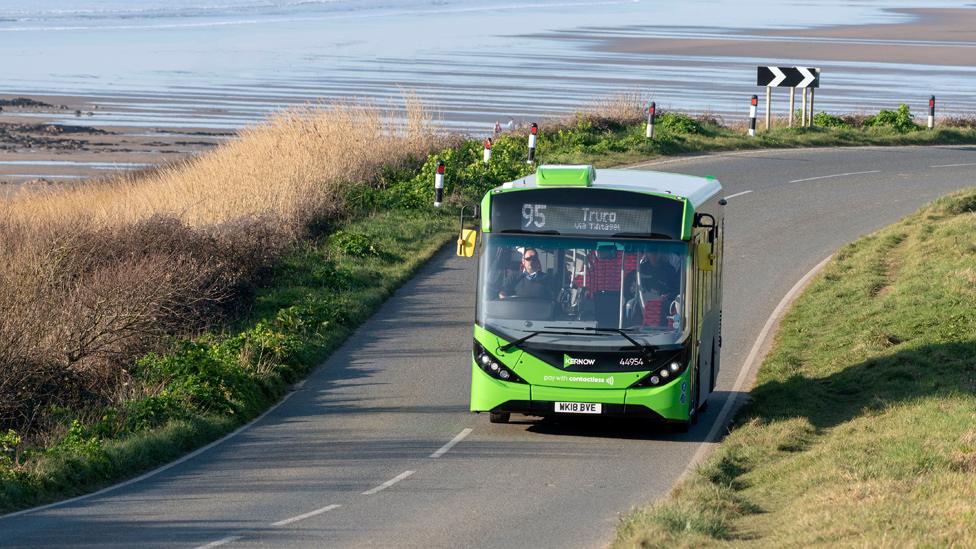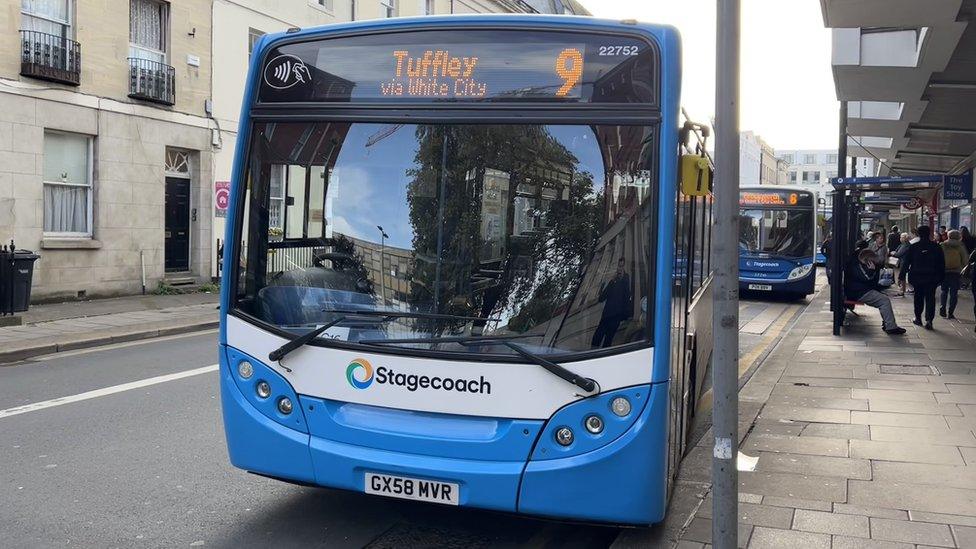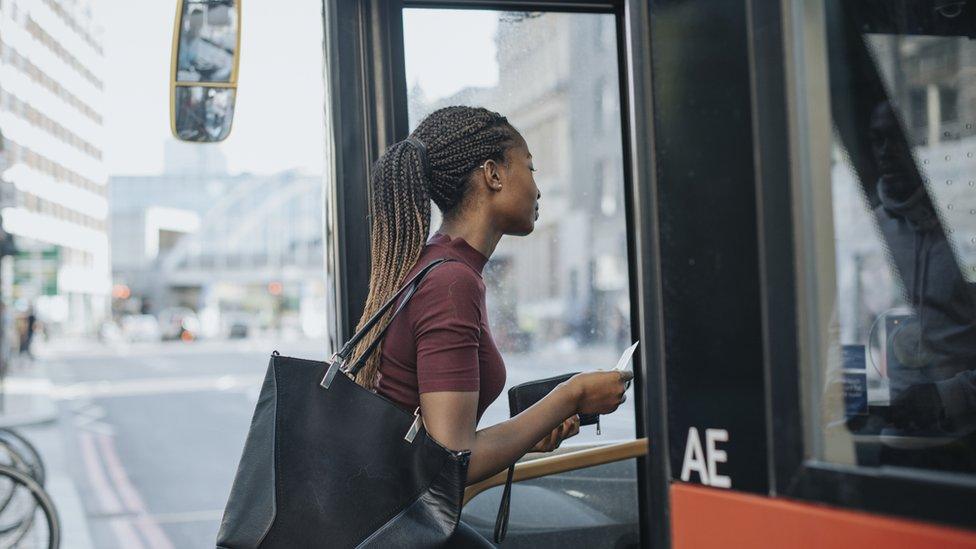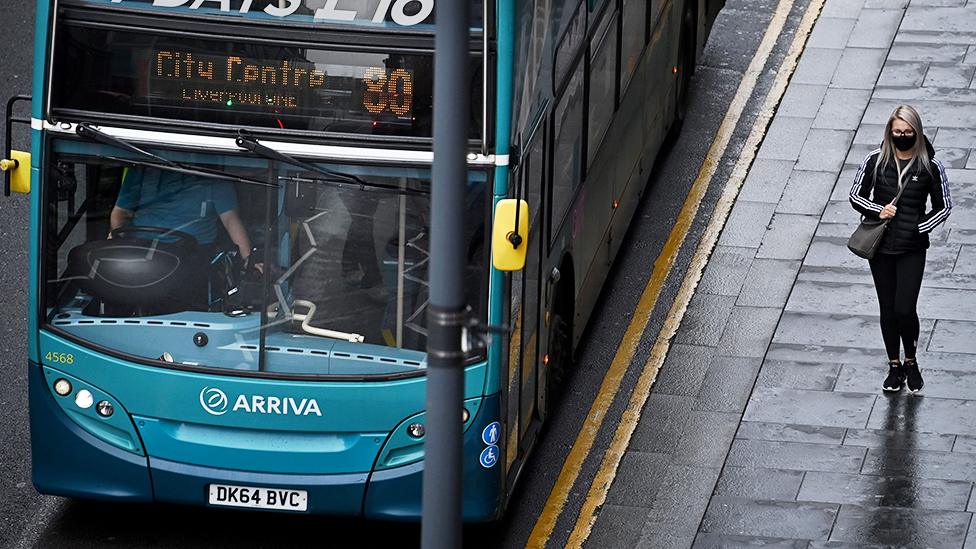2,160 bus routes cut in England leaving communities isolated, campaigners say
- Published
- comments

Axing bus routes in England leaves communities "cut off" from essential services and interactions, campaigners have warned.
The latest official data seems to show, external a reduction of 2,160 bus routes, or nearly 20%, between 2022 and 2023.
Labour accused the government of "vandalism against communities" and said more services were at risk.
The Department for Transport acknowledged there has been a reduction in bus services.
But it said the figures were misleading because the way they are calculated has changed.
The Traffic Commissioners for Great Britain, which is responsible for licensing and regulating bus services, has seen registrations go down from 10,941 in 2022 to 8,781 in 2023, a reduction of 2,160.
But some bus services deregistered by the commission are now operated under licenses issued by local transport authorities, including the West of England Combined Authority and Hertfordshire.
The figures do not include London, where Transport for London is responsible for regulating bus services.
Paul Tuohy, from Campaign for Better Transport, said reduced bus services is "leaving communities cut off from jobs, education, services, friends and family".
Mr Tuohy urged the DfT to provide more long-term funding for buses.
"We need an end to competitive funding and instead, long-term investment in the form of a single funding pot for all local authorities," he told the BBC.
Labour says it will tackle the decline in services by giving mayors and and local transport authorities more power to choose routes and reduce fares.
Louise Haigh, Labour's shadow transport secretary, said: "The staggering decline in local bus services under this government is nothing short of vandalism against our communities.
"Millions of people rely on these essential services, but they are being left without a voice as routes are cut back year after year.
"Labour's plans will put passengers first by allowing communities to take back control over their bus services."

Graham Vidler, from the Confederation of Passenger Transport, the trade association for the bus and coach sector, said: "Bus remains the nation's most popular type of public transport and passenger numbers are increasing year-on-year by over 10%.
"In the longer term, speeding up buses is key to putting on more routes for passengers.
"That's why we're calling on the government to invest in the bus sector and fund more bus priority measures that keep buses out of congestion to create faster, more reliable bus journeys."
The government extended the £2 cap on bus fares in England until the end of October.
The cap, which applies to more than 130 bus operators outside of London, was first introduced during the pandemic to support bus firms when passenger numbers fell.
Extending the current cap until the end of October and then subsiding fares at £2.50 until November 2024 will cost £200m, the government said.
Currently the average cost for a single journey for an adult is £2.80, but can exceed £5 in rural areas, the government says.
The Department for Transport said it would provide £300m to councils and operators until 2025 to protect routes that passengers rely on for work, education and medical appointments, and to improve infrastructure.
Related topics
- Published17 May 2023

- Published30 December 2022
